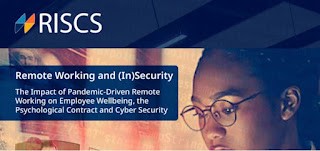At the beginning of our time in the CDT: 2022 Cohort
As a cohort of 13 students, the first few weeks of entering the CDT have been hectic but immensely fascinating. We all came into the CDT for different but related reasons. Evidently, we all have a strong interest in cybersecurity, but the focus of that interest really varies. Some of us have an interest in the social and political elements of cybersecurity, whereas others thrive on theoretical and applied cryptographic questions, malware analysis, and systems design. While in a standard 3-year PhD our interests may intersect and overlap in passing, the structure of the CDT allows for us to directly confront and take on each other’s strengths, thus changing the way that we will likely see our own research methods and interests in the future. For example, social scientists in the cohort get to benefit from the complex knowledge bases of the more technically minded researchers, and the more technically minded researchers get to explore the expanded toolkit of methods and research frameworks that social scientists bring to the table. Many of us also have worked in private sector jobs before joining the CDT, which adds another layer of richness to our interactions, specific expertise, and ways of doing. It will be intriguing to see what we will all produce in the next four years.
Since the first year of the CDT comprises primarily of modules, this has presented the unique opportunity for us to really get to know each other since induction. With Royal Holloway being a campus university, you really get that sense of being around your cohort a lot, and it is truly nice to be able to have that sense of community. We are all taking modules, but depending on each person’s individual disciplinary background, the specific modules each of us are enrolled in varies. Some of us are enrolled in more technical modules (e.g., computer security, network security), while others are reading and discussing papers from the social sciences. Some of us are also taking modules such as advanced distributed systems or applications of cryptography.
In addition to modules, we have been working on a group project on how to ‘cybersecure’ a university, which involves a group presentation, workshop, and written report. Beyond socialising on campus and at the pub, collaborating on this group project has been such a crucial way for us to get to know each other in terms of how we work, understand cybersecurity, and produce results together. Being a cohort of 13 students, it is no easy feat to produce a group paper and presentation, since we all come with such a variety of perspectives in terms of completing the task at hand. Despite this, the inherent difficulty of the task is part of what has been making it fulfilling to chip away at. We are currently drafting the report and preparing for the workshop, and it has been interesting to watch the project take concrete form.
Overall, the first few weeks of our time in the CDT have been spent participating in modules, socialising, and working together on a group project. We are still in the early stages of a long journey to come, but thus far, it has felt like an absolutely ideal start.



Comments
Post a Comment